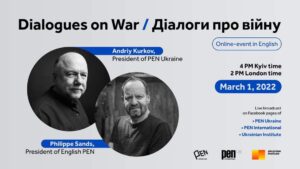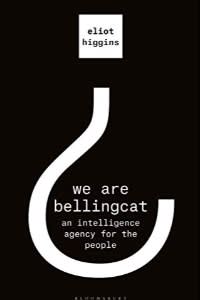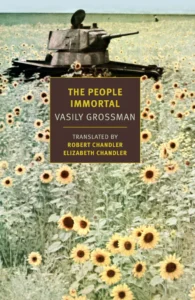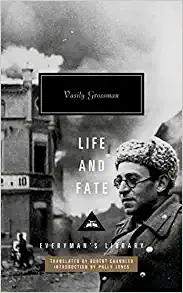Ukraine was a troubled former Soviet republic with a history of corruption, and the U.S. and allied answer to earlier Russian aggression there had been uncertain and divided. When the invasion came, the Ukrainians would need significant new weaponry to defend themselves. Too little could guarantee a Russian victory. But too much might provoke a direct NATO conflict with nuclear-armed Russia, The Washington Post reports:
This new account, in previously unreported detail, shines new light on the uphill climb to restore U.S. credibility, the attempt to balance secrecy around intelligence with the need to persuade others of its truth, and the challenge of determining how the world’s most powerful military alliance would help a less-than-perfect democracy on Russia’s border defy an attack without NATO firing a shot.
Must-read @washingtonpost account of how @NATO helped #Ukraine‘s less-than-perfect democracy on Russia’s border defy an attack without firing a shot. https://t.co/lfK2UCGBSV
— Democracy Digest (@demdigest) August 16, 2022
In the run-up to the war, Europeans began to settle into camps that would change little for several months. “I think there were basically three flavors,” a senior administration official told The Post:
- To many in Western Europe, what the Russians were doing was “all coercive diplomacy, [Putin] was just building up to see what he could get. He’s not going to invade … it’s crazy.”
- Many of NATO’s newer members in eastern and southeastern Europe thought Putin “may do something, but it would be limited in scope,” the official said, “ … another bite at the [Ukrainian] apple,” similar to what happened in 2014.
- But Britain and the Baltic states, which were always nervous about Russian intentions, believed a full-scale invasion was coming.
 Prominent figures have joined Ukraine’s government in calling for a new Nuremberg-style tribunal to hold Russia’s leaders to account for one crime they say is falling through the cracks, CBS News’ Haley Ott reports (above). Since 1945, there have been four types of defined international crime: war crimes, crimes against humanity, genocide, and the crime of aggression.
Prominent figures have joined Ukraine’s government in calling for a new Nuremberg-style tribunal to hold Russia’s leaders to account for one crime they say is falling through the cracks, CBS News’ Haley Ott reports (above). Since 1945, there have been four types of defined international crime: war crimes, crimes against humanity, genocide, and the crime of aggression.
The last, articulated under the International Criminal Court’s founding Rome Statute, is defined as “waging a manifestly illegal war,” said international law expert Philippe Sands. Aggression “is a leadership crime,” he explained. “It is only committed by those who have the power, the capacity to decide to wage or continue a manifestly illegal war. What that means in the context of Ukraine; you’re talking about Mr. Putin, Mr. Lavrov [Russian Foreign Minister], the Minister of Defense, the top military officials, the top intelligence people.”
 Bellingcat’s executive director says it has already been approached by the ICC with regard to providing evidence of atrocities.
Bellingcat’s executive director says it has already been approached by the ICC with regard to providing evidence of atrocities.
Amnesty International’s recent attack on Ukraine raises yet again the issue of how the size, governance, and influence of the largest human rights organizations may damage the cause of human rights, argues Elliott Abrams. It is critical to examine their size and influence: compared to many NGOs in the field of democracy promotion and human rights, they are behemoths whose staffs and spending dwarf others in the field, he writes for the Council on Foreign Relations.
“The intense debate triggered by an Amnesty report alleging Ukrainian violations of international law highlights wider questions of credibility and bias in the campaigns led by powerful NGOs which purport to advance human rights agendas,” NGO Monitor’s Gerald Steinberg writes in an article entitled False Accusations and Ideological Bias: Amnesty International, Ukraine, and the Illusion of NGO Fact-Finding Expertise.
 “A nation of millions is now going out to die for its freedom, just as it used to go out to work in field and factory . . . This nation, like no other nation in the world, knows how to die sternly and simply,” the late Vasily Grossman wrote in The People Immortal, in which he also, tellingly, describes Nazi anti-Semitism as “the child of Prussian militarism and the [tsarist] Russian autocracy”.
“A nation of millions is now going out to die for its freedom, just as it used to go out to work in field and factory . . . This nation, like no other nation in the world, knows how to die sternly and simply,” the late Vasily Grossman wrote in The People Immortal, in which he also, tellingly, describes Nazi anti-Semitism as “the child of Prussian militarism and the [tsarist] Russian autocracy”.
The situation in Ukraine today is a sad and strange echo of Grossman’s diary entries, compiled into ‘A Writer at War,’ in which he narrated the recapture of eastern and southern Ukraine by the Red Army in 1944, Le Monde’s
Grossman’s book, “Life and Fate,” has been described as a 20th Century War and Peace. The Soviet authorities deemed the book so dangerous that not only the manuscript but the ribbons on which it had been typed were confiscated by the state.
“As a proud son of Ukraine, steeped in Russian culture, Grossman was both a chronicler of the Soviet Union’s greatest victories and a clear-eyed investigator of some of its darkest crimes,” John Thornill writes in the Financial Times.
As the Germans retreated [in World War II], Grossman saw what had happened to the Jews in Ukraine and wrote his famous unpublished report in 1943, Ukraine without Jews. David Herman writes for Prospect:
 His mother was one of 12,000 Jews killed in one day in his hometown of Berdychiv to the southwest of Kyiv, one of the first mass killings by the Nazi Einsatzgruppen. He never recovered from her death. A decade later he wrote the chapter “The Murder of the Jews of Berdichev” for The Black Book, a publication that set out to chronicle the worst crimes by the Nazis in the Soviet Union (and which Grossman himself edited alongside Ilya Ehrenburg).
His mother was one of 12,000 Jews killed in one day in his hometown of Berdychiv to the southwest of Kyiv, one of the first mass killings by the Nazi Einsatzgruppen. He never recovered from her death. A decade later he wrote the chapter “The Murder of the Jews of Berdichev” for The Black Book, a publication that set out to chronicle the worst crimes by the Nazis in the Soviet Union (and which Grossman himself edited alongside Ilya Ehrenburg).
“I have seen the unshakeable strength of the idea of social good that was born in my own country. I saw this struggle during the period of general collectivization and again in 1937,” his character Ikonnikov states in Life and Fate, with respect to the Holodomor, the Stalinist terror and purges, and the Gulag:
I saw people being annihilated in the name of an idea of good as fine and humane as the ideal of Christianity. I saw whole villages dying of hunger; I saw peasant children dying in the snows of Siberia; I saw trains bound for Siberia with hundreds and thousands of men and women from Moscow, Leningrad and every city in Russia — men and women who had been declared enemies of a great and bright idea of social good. This idea was something fine and noble — yet it killed some without mercy, crippled the lives of others, and separated wives from husbands and children from fathers. (406-407)







